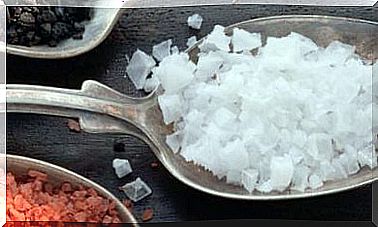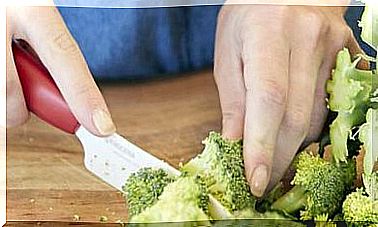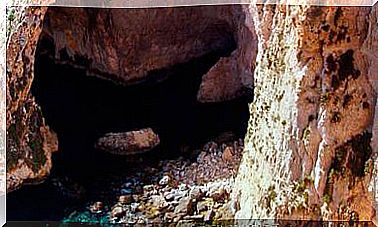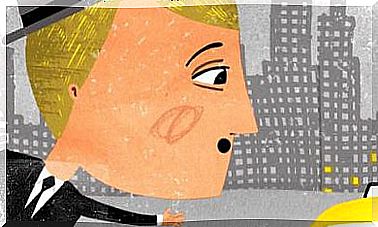“The Public Must Press For The Elimination Of Pesticides”
Koldo Hernández, spokesperson for Ecologistas en Acción, asks us to demand from politicians a plan to eliminate pesticides, which are damaging the health of people and the biodiversity of ecosystems.
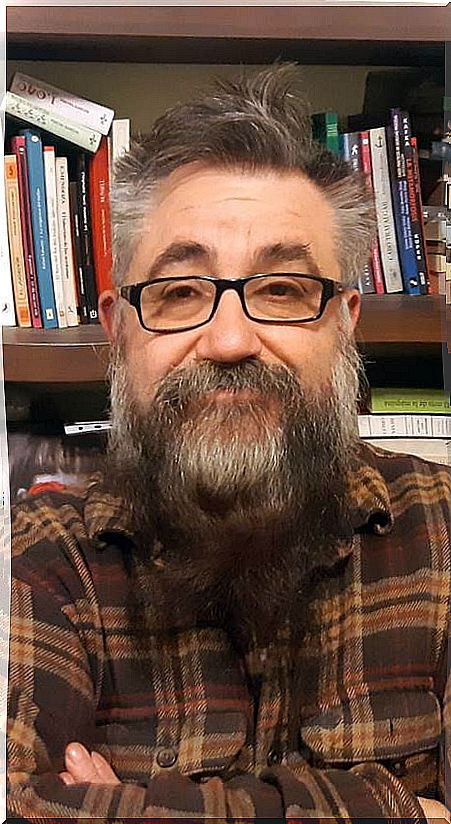
Spain is the country in Europe with the highest production of organic food, but it is also the one that uses the most pesticides, pesticides that make us sick and reduce biodiversity. Ecologists in Action has demanded that political parties cut pesticide consumption in half before 2023. But change depends on us, says its spokesperson, Koldo Hernández Lozano.
Koldo, lawyer and person in charge of the campaigns on chemical products of the environmental organization, urges us to ask ourselves what we want as human beings and as a society to pressure the Administration, since the toxic load passes from generation to generation.
Do not Spanish farmers associate the damage to their health with pesticides?
In Spain there is an alarming lack of data on acute and chronic poisonings by pesticides. That is why there is still no awareness that certain types of cancer have an environmental exposure basis. Nor does this consciousness exist in society. The health authorities provide scant information on environmental health, although Spain is a leading country in this research with scientists such as Miquel Porta or Nicolás Olea asking general practitioners to give this information to their patients.
“We pass the pollution on to our grandchildren and great-grandchildren”
Why is pollution also a problem for the next generations?
Unless you are interested in these topics, people are not aware that we inherit the chemical load that the environment transmits to us. It passes through the generations. Those of us who are 50 years old are probably the first to have inherited it. Health does not depend only on the genetic code, but also on the internal exposome, with the substances that we introduce into the body, with food for example, and the external one, which is given by the substances to which we are exposed in the environment where we live. . In the case of endocrine disruptors, present in many pesticides and chemicals, they can produce epigenetic changes with repercussions up to the fifth generation. We are talking about grandchildren and great-grandchildren who may have a disease due to exposures that their ancestors have had.
DDT and lindane, which were discontinued in the 1970s and 1990s respectively, are still around.
Yes, that’s why they are called persistent-organic compounds. They were created to last. They take a long time to break down and they tend to break down into metabolites that have as many risks as the molecule itself. And then in the human body they are lipophilic – they dissolve in body fat, so they are not easily removed.
Why is there so much lindane in Spain?
Here there was a very high production of lindane, a pesticide and insecticide widely used in agriculture and in anti-lice lotions. In addition to its great toxicity, it had the disadvantage that the manufacture of each kilo produced more kilos of waste. So tons and tons of no commercial value were formed that were badly buried in many places in Spain and contaminated and continue to contaminate soil and water in Zaragoza, the Basque Country and Galicia. Also in the Júcar basin, although it was not produced there. This indicates that the industries of the moment made deposits that are not registered. That is why Spain should make an effort to locate these sources of toxins and neutralize them, as advised by Europe.
“Farmers need incentives to switch to organic production”
And will we ever see pesticides disappear?
No, if the citizens do not press. But they could disappear if a National Pesticides Plan were established with effective and binding measures and a certain percentage of reduction. We have an agricultural model very dependent on chemicals with which it seems that the Administration feels comfortable, but this may change if the organic industry, in full growth, demands more agricultural area, although the products are not consumed in Spain but in other countries . If farmers do not receive incentives to change their production model, they will hardly do so.
What can the citizen do to influence this change of model?
It all depends on how we perceive reality. What seems common to us now, years ago was not, such as the use of plastic bags. Public administrations allow the industry to make us adopt certain consumption patterns that in a short time we have made our own, making them our reality. It is very important to modify our individual habits and the way we see reality.
Spain is the largest producer of European organic agriculture, to which it dedicates 8% of the territory. Is there hope that it will increase its surface?
It depends on the model of organic farming that we have: very social or franchised. I believe that ecological consumption is here to stay since Carrefour puts an ecological corner, because they see business. However, in large stores there are many organic products out of season that come from Chile or Argentina and that also pollute because they travel a long distance. It makes no sense to consume what third countries produce instead of the 8% that we produce.
“It is necessary to train farmers so that they know how to do comprehensive pest management”
The 2012 Sustainable Use of Pesticides Directive advises farmers to practice crop rotation, as organic farmers do.
Yes, but it is not talking about reducing consumption. A cornerstone is comprehensive pest management, which is that before applying a pesticide you have to make sure it is the last option. And if it is applied, that it is a minimum amount of the product with less risk and avoiding that it is dispersed. If the farmer does not use integral pest management, the industry will not be pressured to create phytosanitary products that innovate with less risk. Without training, awareness and vigilance, this Directive becomes dead letter and will depend only on the will and training of the user to avoid pesticides using other alternatives.
Why doesn’t the Directive establish penalties?
Because it would have to sanction all countries, since for the most part it is not being well implemented in the European community. Spain does a little worse than others but it is no exception. The norm is that no country is complying with it effectively, and the EU recognizes this in its audits. So the only solution is to set binding targets, because through this directive they are not.
But Europe is willing to sanction Spain for not complying with carbon dioxide emissions.
Yes, because Madrid and Barcelona are not complying with them and there is greater public awareness. In addition, there are organizations that are taking this issue to court and that is why there is greater pressure. Air quality has more importance in the press and society and its laws have more time. The same can happen in a few years when administrations are brought to court for contaminating pesticides because when an administration does not adopt effective and real measures it ends up facing a sanction.
Does conventional agriculture contribute more CO2 to the atmosphere?
The carbon footprint is higher than organic farming because phytosanitary products are dependent on oil. If you analyze their life cycle, you have to see how they have been produced, the expense they have and their distribution.
Ecologistas en Acción is very critical of the amount of residues that have been found in food analysis, as 2% of the samples exceeded the permitted limits. The European Food Safety Authority (EFSA) says there is no public health problem.
Europe is compliant with its system so it believes that it does not need to modify it. But if we turn the results around, we must correct that 2% that is wrong, because we can all eat these foods with residues above what European legislation marks as safe. Europe should increase vigilance, because until now there is no European standard that requires the analysis of a minimum amount of food and waste, but it is at the mercy of the political and economic decision of each country. In 2015 we were the country of the 28 members of Europe that analyzed the fewest products.
“What affects an animal or a plant can also affect us”
The drastic mass disappearance of insects, and in addition to pollinators, does it have to make us think?
Of course, we must reflect on what we want as human beings and as a society. And it is clear that in some cases our personal desire does not coincide with the desire of society. But we are living beings and what affects an animal or a plant can also affect us. That is why it is necessary to change and make political decisions to solve this problem.
On the other hand, the reality of diseases such as Multiple Chemical Sensitivity is ignored.
With these diseases, as with breast cancer, resignation is coming. The reality is that we should not have pesticides in our bodies, and if we have them in our urine we must ask for compensation. When you talk about chemical risk, you are not referring to a fictitious matter, you are deciding what society is. That is why society has to have a powerful voice. Organizations like EFSA in Europe are not doing science, but “regulatory science”. They tell us like oracles which science is good and which is bad, and then they set limits that become the risk that society has allowed. But you do not have to allow yourself to take the risk of having this poison in your body, even if they tell you that it is harmless because we are already seeing that it is not.
And wouldn’t governments find it just as profitable to exploit a clean industries economy?
I am convinced that it is. The industry just wants to make money, but if they are selling a chemical that already gives them beastly profits, who is going to change for no reason? The industry will change when civil society makes it possible for this to change. If not, the only thing the industry will do is get the “ISO 14.001” [voluntary environmental management certification], which is divine as advertising, but nothing more.
